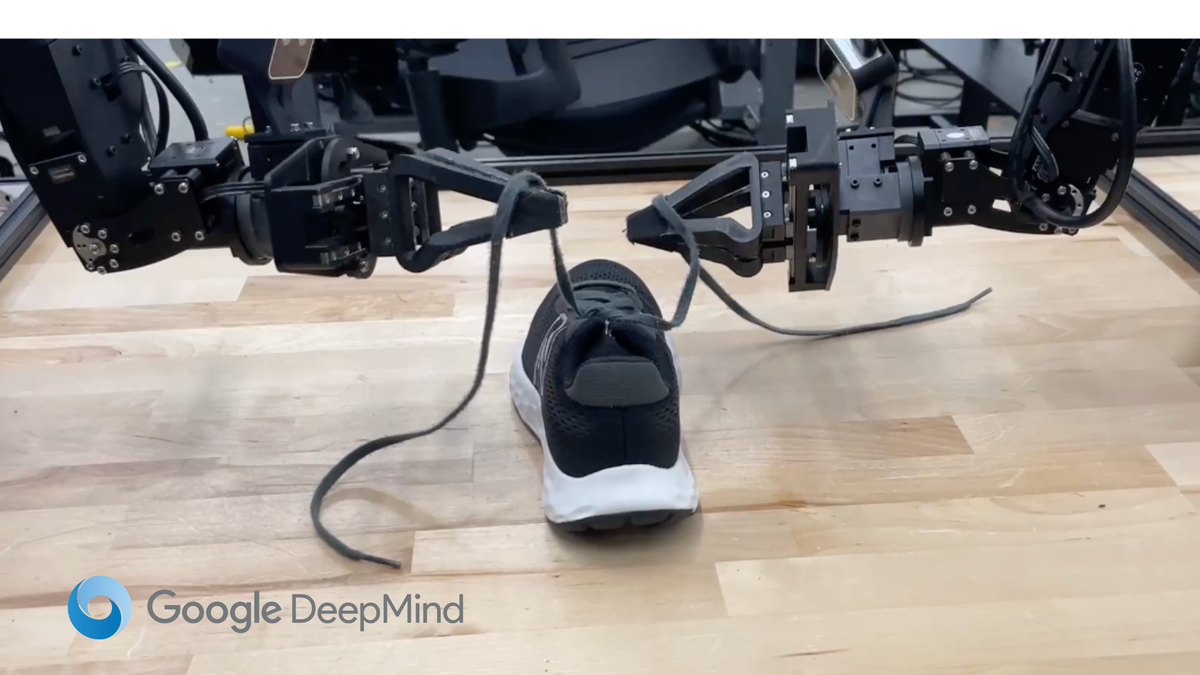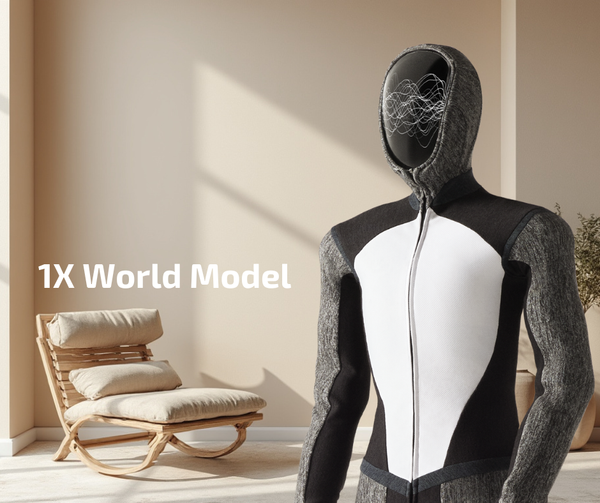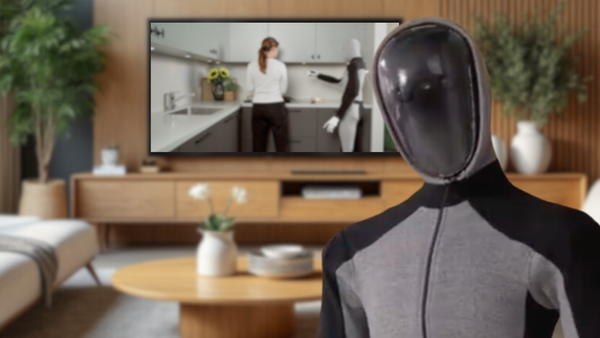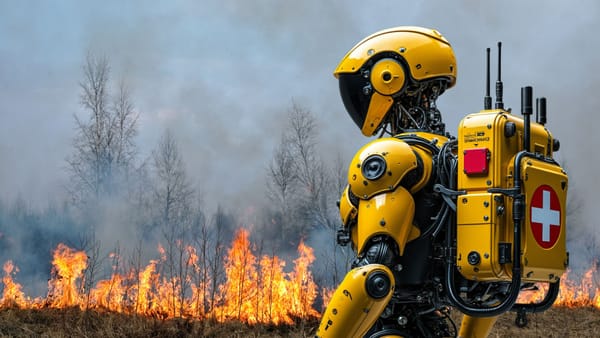Google DeepMind Is Redefining Humanoid Robotics With ALOHA Unleashed and DemoStart
From Coordination to Precision and the Real-World Impact of Google DeepMind’s Robotic Innovations - ALOHA Unleashed and DemoStart

Robotics is undergoing a significant shift, thanks to innovations from Google DeepMind. Two new systems, ALOHA Unleashed and DemoStart, promise to enhance robot dexterity, enabling machines to handle complex, multi-step tasks.
For humanoid robotics, these developments could change how robots operate in real-world environments.
ALOHA Unleashed: Improving Two-Armed Robotic Coordination
One of the main challenges in humanoid robotics is achieving synchronized movement across multiple limbs, similar to how humans use their arms to perform intricate tasks. Robots have been designed to manage simple, repetitive tasks with one arm. This limits their potential in environments that demand higher levels of coordination.
ALOHA Unleashed solves this issue by enabling robots to perform two-armed tasks that previously required human dexterity. Consider a scenario like tying shoelaces or assembling a device. Those tasks require coordination, precision, and feedback-based adjustments.
As humans, we perform these tasks without thinking about it. Robots, not so much.

These actions are difficult for a machine without advanced motor control and perceptive capabilities. ALOHA Unleashed improves how robots manage multiple appendages at the same time.
The key breakthrough of ALOHA Unleashed is how it teaches robots these tasks. In the past, robots needed numerous training demonstrations to learn simple tasks. ALOHA Unleashed accelerates this process, allowing robots to adapt with fewer examples.
By reducing the learning curve, robots can be programmed with less human intervention, cutting both time and costs for deployment in real-world scenarios.
DemoStart: Mastering Multi-Fingered Precision
While ALOHA Unleashed focuses on arm movements, DemoStart is about tasks that require intricate finger control. Robot hands capable of multi-fingered control open up new possibilities for performing tasks that humans do, such as picking up and reorienting objects or tightening bolts.
DemoStart uses a reinforcement learning algorithm to optimize how robots control their fingers and hands for precision-based tasks. Reinforcement learning enables the robot to trial and error its way to mastering a task, but what sets DemoStart apart is its efficiency.

It requires up to 100 times fewer training simulations compared to traditional systems, cutting down the preparation phase for deployment.
The standout feature of DemoStart is not just its performance in simulated environments but its ability to transfer learned skills to the real world. After simulation training, DemoStart achieved a 97% success rate in complex tasks like cube reorientation and socket insertion, commonly used in industrial automation.
This level of precision, combined with the low need for retraining in new environments, could reduce operational costs in factories and similar settings.
The Real-World Implications for Humanoid Robotics
The most exciting aspect of these advancements from Google DeepMind is their potential for real-world applications, particularly in humanoid robotics. Robots with enhanced dexterity can extend their usefulness in several sectors, such as healthcare, manufacturing, and home assistance.
- Healthcare and Personal Assistance: In environments where precision and human-like dexterity are essential, such as surgery or assisting the elderly, humanoid robots equipped with ALOHA Unleashed and DemoStart could improve the quality of care. Tasks like adjusting medical equipment, aiding in rehabilitation exercises, or assisting individuals with disabilities in daily tasks would become more achievable.
- Manufacturing and Industrial Automation: In factories, robots that can perform complex, multi-step assembly tasks with two hands or manipulate small, delicate parts using precise finger control would increase productivity and safety. These systems could replace or complement human workers in roles that require high precision, such as electronics manufacturing or car assembly.
- Household Robots: One of the goals of humanoid robot companies is to create machines that can function in domestic environments, performing tasks like cooking, cleaning, or basic home repairs. Robots with advanced dexterity, developed through ALOHA Unleashed and DemoStart, could not only handle basic chores but also perform intricate tasks like folding laundry or assembling furniture, expanding their usefulness in home environments.
Challenges in Implementation
While the advancements made by ALOHA Unleashed and DemoStart are impressive, several challenges arise when applying these systems to humanoid robots:
- Real-World Variability: Although DemoStart has shown success in transferring skills from simulation to the real world, real-world environments are often unpredictable. Variations in lighting, object textures, or unexpected obstacles can still pose challenges. Bridging the gap between controlled simulations and real-world settings will require further improvements in sensory processing and adaptive learning algorithms.
- Hardware Limitations: Implementing these advanced AI systems also depends on the availability of robotics hardware capable of supporting high levels of dexterity and coordination. Developing affordable, functional robot hands and arms that match the capabilities of ALOHA Unleashed and DemoStart will be essential for large-scale deployment.
- Ethical Considerations: As robots become capable of performing complex tasks, especially in healthcare or caregiving, ethical concerns about replacing human workers or the treatment of robots will need to be addressed. Ensuring that humanoid robots enhance human capabilities rather than replace critical jobs is an important consideration moving forward.
Final Thoughts on Google DeepMind’s Breakthroughs
The advancements introduced by Google DeepMind through ALOHA Unleashed and DemoStart represent a significant step in robotic dexterity, bringing robots closer to human-like functionality. Whether applied in healthcare, manufacturing, or households, these systems enable robots to perform tasks that require both coordination and precision at a high level.
However, realizing their full potential will depend on overcoming real-world challenges, refining hardware, and addressing ethical questions.
As research continues, these innovations could lead to humanoid robots becoming essential partners in daily life, changing industries, and improving the way humans and robots interact.



